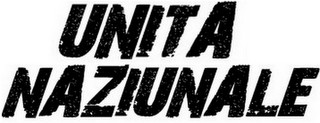Corsica has passed a proposal to make it impossible for non-residents to buy property on the island. The French island on Friday made it compulsory for people to be permanent residents for a minimum of five years, in a bid to curb speculation and ease development pressure.
Foreign investors have contributed to inflated house, apartment and land prices on the island, officials have said. Currently, holiday homes owned by non-Corsicans account for up to 40% of all Corsican real estate. The number of holiday homes on Corsica has soared from 7000 in 1968 to 710,000 today, according to statistics agency INSEE. The subsequent high demand for land has been linked to gang crime and high homicide rates, further garnering negative feeling towards foreign investors. The law will provide exceptions for native Corsicans living abroad.
The new proposal has garnered hot debate since it was introduced last summer. Those against the bill, mainly from the far left, have voiced concerns that the changes could create a black market in real estate – while nationalists in the country are strongly against foreigners using Corsican properties as holiday homes, sometimes resorting to violent tactics. The bill also includes a tax rise on holiday homes. The proposal will have to be approved by the French parliament, and may yet face challenges from the EU.
http://www.opp-connect.com/28/04/2014/corsica-proposal-means-property-only-available-to-residents/
The local parliament on the French island of Corsica has voted to ban anyone who has not lived on the island for five years from buying property on the Mediterranean “Isle of Beauty”. The move is an attempt to stop property prices out of reach of the local population. The Corsican local assembly passed the measure by 29-18 on Friday but it must gain approval in the French National Assembly to become law.That is unlikely since the government has already said that creating a status of “resident”, which is part of the proposal, would be unconstitutional because it violates the principle of equality of all French citizens
About 40 per cent of homes in Corsica are secondary residences, often used for only a small part of the year or rented out to tourists at high rents. The property boom on one of France’s favourite tourist destinations has seen prices soar, especially along the coastline, and has been linked to corruption and crime. With average incomes 20 per cent lower than the rest of France, finding a home has become increasingly difficult for many locals, especially young people. The majority of the island’s 310,000 population is not of Corsican origin and 4-5,000 people move there each year. The measure aims to “tackle the massive appropriation of real estate to build secondary residences … which inflicts economic, social and even political harm in daily life”, according to Paul Giacobbi, local and national assembly member for the Left Radical Party, which is part of the ruling coalition in Paris. It proposes an exception for people of Corsican origin who no longer live on the island. Corsica has several nationalist parties and all their representatives in the local assembly voted for the proposal. The right opposed it but the left was divided, with the Communist Party claiming that it would lead to a black market in property. Giacobbi argues that the measure “has nothing discriminatory about it”. But, in the unlikely event of the measure being endorsed by the National Assembly and the Senate, it would almost certainly be challenged in the Constitutional Court and, if it was accepted there, at a European level on the grounds of market openness.
http://www.english.rfi.fr/europe/20140426-corsica-votes-ban-house-sales-non-residents



